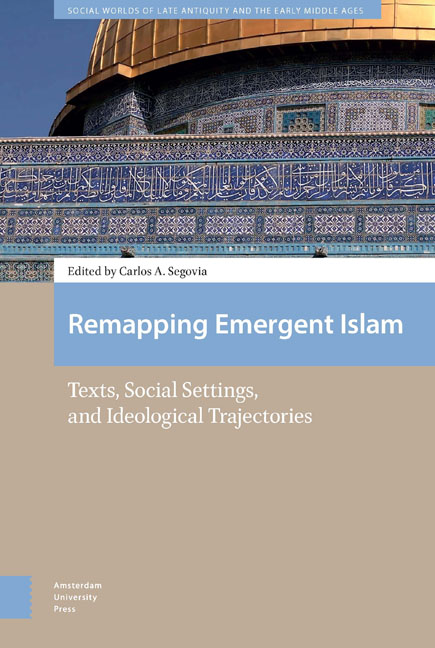Book contents
- Frontmatter
- Contents
- Introduction
- Part 1 Re-Assessing the Hypothesis of a Peripheral Jewish Background
- Part 2 An Encrypted Manichaean / Messalian Matrix?
- Part 3 Measuring the World’s Timeline… and Imagining the Afterlife at the Persian Court?
- Part 4 Conceptual Quicksand, Meta-Narratives of Identity, Texts and their Marginalia
4 - Messalianism, Binitarianism, and the East-Syrian Background of the Qur’ān
Published online by Cambridge University Press: 24 November 2020
- Frontmatter
- Contents
- Introduction
- Part 1 Re-Assessing the Hypothesis of a Peripheral Jewish Background
- Part 2 An Encrypted Manichaean / Messalian Matrix?
- Part 3 Measuring the World’s Timeline… and Imagining the Afterlife at the Persian Court?
- Part 4 Conceptual Quicksand, Meta-Narratives of Identity, Texts and their Marginalia
Summary
Abstract
The theology of the earliest quranic layers displays a puzzling characteristic: it is overtly binitarian. Through the interplay and alignment of quranic discourse analysis, structuralist-Marxist epistemology, and Lacanian psychoanalysis, Segovia uncovers the most plausible historical setting of the early binitarian theology of the Qur’ān in light of the east-Syrian monastic crisis of the early seventh century and the role played in it by the Messalians.
Keywords: Late Antiquity, Early Islam, Messalianism, Qur’ān
This is an essay on early Islamic, or better proto-Islamic, geopolitics, textuality, and beliefs. It is written in the conviction that applying internal, textual criteria to the analysis of the quranic corpus may provide more satisfactory results for a correct understanding of the document's content and setting than applying the admixture of doctrinal and pseudo-historical interpretation supplied by the Islamic tradition. Over the past ten years, my research has attempted to highlight the document's generally underestimated scribal setting and hyper-textual background and, more importantly, to decipher some of its key redactional layers, periods of composition, and geographical-cultural settings through the examination, and typological classification, of a number of symptomatic textual indices combining group-identity markers, ideological discursive strategies, and (meta)religious concepts. The task can be viewed as recursive and intersectional, for typology is often indicative of context, and contextual analysis often serves to trace chronology. Ultimately this implies expanding the boundaries of the proto-Islamic milieu (I am somewhat reluctant to speak of ‘Islam’ strictu sensu before the late seventh century) in both space and time, as also to a certain extent the composition and collection of the Qur’ān itself. Yet I am persuaded that we need a new interpretative lens, as well as more sophisticated tools, to study the latter, and that questions of theory and method must be very clear from the outset if we want to get a good picture of what the quranic corpus originally was – supposing we can still speak in the singular. I moreover take this type of investigation to be of special relevance given the naivety of a field of study that has been, and sadly remains today, excessively dependent on obsolete and purely emic master-narratives.
- Type
- Chapter
- Information
- Remapping Emergent IslamTexts, Social Settings, and Ideological Trajectories, pp. 111 - 128Publisher: Amsterdam University PressPrint publication year: 2020



